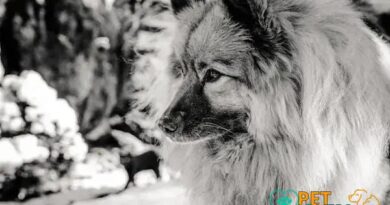What is Unruly Dogs
Understanding Unruly Dogs
Unruly dogs are those that exhibit challenging behaviors that can be difficult for owners to manage. These behaviors may include excessive barking, jumping, chewing, and a lack of obedience to commands. Understanding what constitutes an unruly dog is essential for pet owners who want to foster a harmonious relationship with their furry companions.
Common Traits of Unruly Dogs
Unruly dogs often display a range of traits that can make them seem uncontrollable. These traits may include hyperactivity, impulsiveness, and a tendency to ignore commands. Additionally, they may struggle with socialization, leading to difficulties when interacting with other dogs or people. Recognizing these traits is the first step in addressing the underlying issues.
Causes of Unruly Behavior
Several factors can contribute to a dog’s unruly behavior. Lack of training, insufficient exercise, and inadequate socialization during their formative months can all play significant roles. Moreover, certain breeds may be more prone to unruly behavior due to their natural instincts and energy levels. Understanding these causes can help owners take proactive measures to mitigate such behaviors.
Training Techniques for Unruly Dogs
Effective training techniques are crucial for managing unruly dogs. Positive reinforcement methods, such as rewarding good behavior with treats or praise, can encourage dogs to behave appropriately. Consistency in training sessions and establishing clear boundaries are also essential. Owners should focus on teaching basic commands and gradually introduce more complex tasks as their dogs improve.
The Importance of Socialization
Socialization is a vital aspect of raising a well-behaved dog. Exposing unruly dogs to various environments, people, and other animals can help them learn appropriate behaviors. Socialization should begin at a young age, but it’s never too late to start. Engaging in group training classes or dog parks can provide valuable opportunities for social interaction.
Exercise and Mental Stimulation
Unruly dogs often require more physical and mental stimulation than their well-behaved counterparts. Regular exercise, such as walks, runs, or playtime, can help burn off excess energy that may contribute to unruly behavior. Additionally, mental stimulation through puzzle toys, training games, or interactive play can keep their minds engaged and reduce unwanted behaviors.
Seeking Professional Help
In some cases, unruly behavior may be too challenging for owners to manage alone. Seeking the help of a professional dog trainer or behaviorist can provide valuable insights and tailored strategies for addressing specific issues. These experts can assess the dog’s behavior and recommend appropriate training techniques and interventions.
Understanding Breed-Specific Behaviors
Different dog breeds have unique characteristics that can influence their behavior. Some breeds are naturally more energetic and may require more rigorous training and exercise to curb unruly tendencies. Understanding the specific needs and traits of your dog’s breed can help owners tailor their training and care approaches effectively.
Creating a Structured Environment
Establishing a structured environment is essential for managing unruly dogs. This includes setting a consistent daily routine for feeding, exercise, and training. Providing clear rules and boundaries helps dogs understand what is expected of them, reducing confusion and promoting better behavior.
Patience and Persistence in Training
Training an unruly dog requires patience and persistence. Owners should be prepared for setbacks and understand that progress may take time. Celebrating small victories and remaining committed to the training process can lead to significant improvements in behavior over time. Consistency and a positive attitude are key components of successful dog training.




